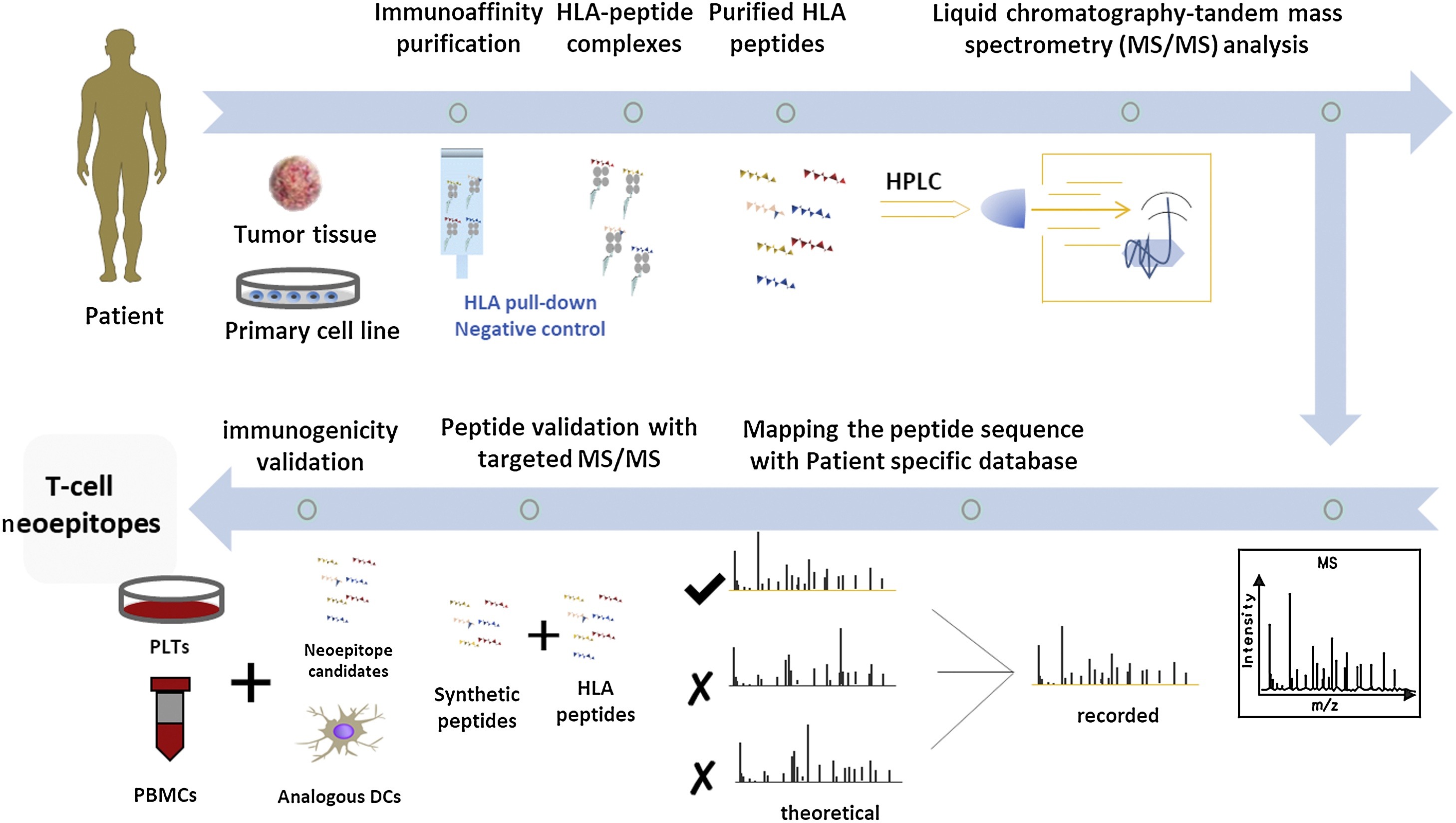Immunopeptidome Profiling Service
Immunopeptidome profiling is a high-throughput technique designed to comprehensively analyze the repertoire of antigen peptides (the immunopeptidome) presented by MHC molecules on the surface of cells. By isolating MHC complexes from cells and separating the bound peptides, then identifying and quantifying these peptides using high-resolution liquid chromatography-tandem mass spectrometry (LC-MS/MS), this technology sheds light on how the immune system recognizes pathogen infections, tumor mutations, or self-antigens. Compared to traditional immunological analysis methods, immunopeptidome profiling delivers more comprehensive and detailed antigenic information, providing a powerful tool for understanding the diversity of antigen presentation and its regulatory mechanisms.
Immunopeptidome profiling service is widely used in cancer research, infectious disease studies, vaccine development, and autoimmune disease investigations. For example, in cancer immunology, analyzing the peptide repertoire on tumor cells can identify potential neoantigen targets and guide the development of immunotherapies. In infectious diseases, this technique helps identify pathogen-specific peptides triggered by viral or bacterial infections, which can be used in vaccine design. In autoimmune disease research, immunopeptidome profiling reveals mechanisms behind aberrant antigen presentation, offering a scientific basis for treatment strategies.
Services at MtoZ Biolabs
Using a high-resolution mass spectrometry (LC-MS/MS) platform, combined with antigen enrichment and efficient bioinformatics tools, MtoZ Biolabs’ immunopeptidome profiling service focuses on the comprehensive analysis of antigen peptides presented by MHC molecules. By extracting MHC complexes from cell or tissue samples, isolating their bound peptides, and performing sensitive mass spectrometry identification and quantification, this service delivers accurate antigen peptide sequences, quantitative data, and functional annotations. This service supports large-scale research efforts, enabling investigators to uncover solutions for cancer, immune disorders, and infectious diseases, as well as to identify previously unexplored therapeutic targets.
Service Advantages
1. High sensitivity and throughput
Leveraging advanced mass spectrometry technology, we efficiently analyze large-scale immunopeptides, delivering comprehensive immunopeptidome data while ensuring highly sensitive antigen peptide capture and detection.
2. One-Time-Charge
Our pricing is transparent, no hidden fees or additional costs.
3. Broad application scenarios
The service is extensively applicable to cancer immunotherapy, vaccine design, and antigen discovery, helping researchers gain deeper insights into immune responses and their underlying mechanisms.
4. Expert technical team
MtoZ Biolabs boasts an experienced technical team, utilizing state-of-the-art mass spectrometry equipment and data analysis methods to ensure high-quality and reliable outcomes for every project.
Applications
1. Cancer Immunotherapy
Immunopeptidome profiling service assists in identifying and analyzing tumor-specific antigens (TSA) and tumor-associated antigens (TAA), offering critical targets for the development of cancer immunotherapies.
2. Autoimmune Disease Research
By detecting peptides associated with specific immune responses, the service supports molecular mechanism studies and early diagnosis of autoimmune diseases.
3. Vaccine Development
Immunopeptidome profiling service provides critical immune epitope information for vaccine design, enhancing the vaccine’s immunogenic response.
4. Immune Evasion Mechanism Research
The service uncovers how tumor cells alter antigen presentation mechanisms to evade immune surveillance, advancing immune evasion mechanism studies.
Case Study
1. Application of Mass Spectrometry-Based MHC Immunopeptidome Profiling in Neoantigen Identification for Tumor Immunotherapy
The study aims to evaluate the application value of mass spectrometry-based MHC immunopeptidome profiling technology in neoantigen identification and cancer immunotherapy. The investigation involves various tumor samples, employing high-resolution liquid chromatography-tandem mass spectrometry (LC-MS/MS) combined with MHC immunopeptide enrichment strategies to comprehensively analyze immune peptides bound to MHC on tumor cell surfaces. Bioinformatics tools are used to predict the immunogenicity of neoantigens. Results demonstrate that this approach can efficiently decode the MHC immunopeptidome and accurately identify tumor-specific neoantigens, some of which are functionally validated to elicit specific T-cell responses. The study concludes that mass spectrometry-based MHC immunopeptidome analysis is a powerful tool for neoantigen discovery, significantly improving the accuracy and efficiency of neoantigen identification. This advancement offers new strategies for cancer immunotherapy and contributes to the development of personalized cancer immunotherapies.

Zhang, X M. et al. Biomedicine & Pharmacotherapy, 2019.
Figure 1. Simplified Workflow of Tandem Mass Spectrometry-Based HLA Immunopeptidome Profiling in Patient Samples.
Deliverables
1. Comprehensive Experimental Details
2. Materials, Instruments, and Methods
3. A Comprehensive List of All Identified Immune Peptides, Neoantigen Peptides, and Tumor-Associated Antigen Peptides
4. Immunopeptidome Data Quality Analysis Reports, as Presented in Case Studies
5. Bioinformatics Analysis
How to order?







